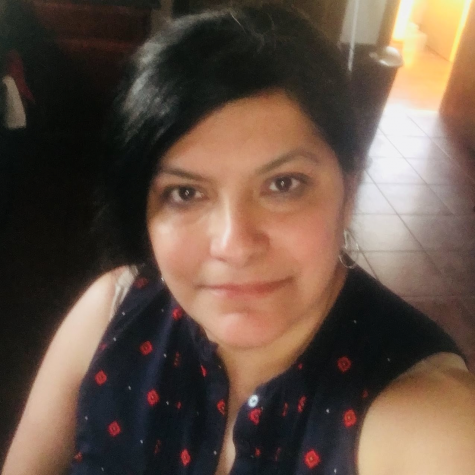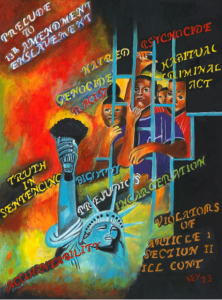The New Latina’s Bible: The Modern Latina’s Guide To Love, Spirituality, Family and La Vida
September 21, 2022
I am Mexican/American, born and raised here in Chicago. When I was very young, I was fluent in Spanish but as time went on, and I was sent to school at a predominantly Polish Catholic School/Parish I spoke in English to fit in with my classmates. There were 83 students in my class, and only seven of us were of Latin American descent. By the time I graduated grade school, I spoke more Polish than I did Spanish. For a long time, I felt like I did not fit into any group at all. I had Caucasian friends and some Hispanic ones too but something was a bit off in both groups. Side note: my grandmother on my dad’s side rode in Pancho Villa’s rebel army. I never got to meet any of my grandparents so I never got those Mexican words of wisdom they dole out or had those summer months at their hacienda. As I read “The New Latina’s Bible” written by Sandra Guzman, I felt that I was getting a crash course on what it is like to be of Latina/x descent.
It’s a work of fiction and an author’s memoir. I felt as if I was hanging out with a comadre and learning what it means to be Latina/x. The Latina/x communities consist of over 20 different countries, people who have blonde hair, and blue eyes, and others who are dark-skinned, curly hair with every other type of person in between. Guzman relies on her wit and our desire to learn more about the fact that many are in the same position you are in. At times, it seems like we are adrift in a sea of cultures and we do not know what to be and when to be it.
Pick up this book and learn that there are many types of people that identify as Latina/x. Spanglish is a form of language that came from our desire to hold on to our rich cultural heritage in any way we can. Suppose Abuelita says how sad she is that their grandchild does not speak fluent Spanish. In that case, that should not matter, you might want to learn someday but no one should shame you about knowing little about your culture when you were asked to assimilate into American culture.
Life as a modern-day Latina/x is only as hard as you make it. There are many traditions we will want to keep and other outdated ways of thinking that we have fought against and won. I am the youngest of eight children and a girl. Traditionally I would have to have stayed with my mother until she passed on, not marry and not have children. The side of me entrenched in American culture got married and had two kids, became more spiritual than Catholic, and divorce is a thing that can happen. So many times we are expected to stay in marriage regardless of how our partner is behaving or misbehaving, and no one is identifying as part of the LGBTQIA+ community of Latina/x descent. Nothing can be farther from the truth, a relationship is hard already and requires work so there is no place for machismo and love really is love, and no matter what Tia Mari feels it is perfectly fine to love someone who is of the same sex.
Guzman tries to cover as much as she can in this book. The ties that bind us no matter what Latin American country you come from have the right to be challenged, and these are some parts of the culture that we will want to keep, we will always celebrate events with a feast that shows your family’s love for one another through the richness of la comida. The myth of what roles a Latina/x woman can play in the workforce has finally morphed into the view that we Latinas can be la Jefa and be good at it. Latinas can be educated and can have the best of both worlds, a career, and home. Latinas do not have to have children if they do not want them. Life as a Latina/x at this point in history is full of possibilities; we just have to believe that we are worthy of it.
Take the time to seek it out and enjoy learning about all our Latina/x sisters’ kinship we share and never feel you need to question your Latina/x heritage again.








